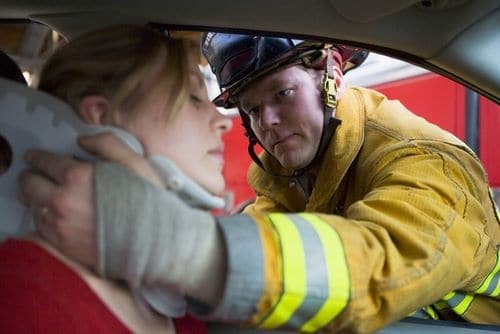What If My Accident Makes A Pre-Existing Condition Worse?
What If My Accident Makes A Pre-Existing Condition Worse?
Accidents are an unfortunate part of life, and they can occur to anyone, anywhere. But what if a car accident makes a pre-existing condition worse? This is a common concern.
The short answer is that you can pursue a personal injury case if an accident worsens a pre-existing injury or condition. If you’ve been hurt in a wreck or other accident in Texas, contact Brent Coon & Associates today.
Pre-Existing Conditions and Injuries
A pre-existing injury or condition refers to an injury or ailment that existed prior to the accident. If you have a pre-existing injury, it means that the specific body part had already been injured before. However, an accident may cause a re-injury or further harm.
The Eggshell Skull Rule
The “Eggshell Plaintiff” rule, alternatively known as the “Eggshell Skull Rule,” is a cornerstone of personal injury law.
The rule stipulates that a defendant must “take the plaintiff as he finds him.” This denotes that the defendant cannot leverage the plaintiff’s pre-existing frailty, weakness, or sensitivity as a defense in a personal injury claim. Even if the plaintiff has a pre-existing condition that makes them more prone to injury, the defendant is still held accountable for all damages.
The eggshell skull doctrine permits individuals with a pre-existing condition to pursue a personal injury lawsuit.
Legal Consequences in Personal Injury Claims
In personal injury claims, the Eggshell Plaintiff rule is often invoked when a defendant’s negligence exacerbates a victim’s pre-existing injury or condition. For instance, if a person with a pre-existing condition suffers more severe injuries in an accident than a “normal person” would, the defendant is still liable for the damages.
This rule is particularly crucial when dealing with insurance companies. Without the Eggshell Plaintiff rule, insurance companies could argue that the plaintiff’s condition existed beforehand and use this argument to deny compensation.
It’s important to note that while the law allows you to seek compensation if an accident made a pre-existing condition worse, insurers may try to deny or underpay your claim. Therefore, having the right legal counsel is crucial.
Establishing That Your Accident Worsened a Pre-Existing Condition
To obtain a fair settlement for compensation for pre-existing conditions post-accident, you need to demonstrate that the accident exacerbated your pre-existing condition. Some typical examples of aggravated injuries include:
- Settlement for pre-existing back injury: A car accident can intensify a pre-existing back injury, resulting in increased pain or mobility restrictions.
- Whiplash injury with a pre-existing condition: If you have a pre-existing neck problem, a whiplash injury can aggravate your condition, leading to additional pain and suffering.
To establish that your pre-existing injury was worsened in an accident, lawyers will collect evidence, such as medical records and expert testimony, to show the link between the accident and the deterioration of your condition.
The Significance of Medical Records and Testimony
Having a pre-existing condition does not automatically disqualify you from seeking compensation. The key lies in proving that the car accident or other accident aggravated or exacerbated your condition, causing additional pain, suffering, or medical care and expenses.
Medical records and professional testimony can play a crucial role in establishing this link. Your treating physicians and medical professionals may be called upon to provide detailed reports and opinions regarding the impact of the accident on your pre-existing condition.
Contact Our Personal Injury Lawyers Today!
If an accident has aggravated a pre-existing injury, you may be entitled to compensation in a personal injury lawsuit. The law in Texas, like in many other states, recognizes the rights of victims with pre-existing conditions to seek damages.
Always consult with a personal injury attorney at Brent Coon & Associates to understand your rights and the best course of action in your specific situation. Contact us at 409-222-2222 for a free case review.
search
our offices
FROM THE BLOG
Texas A&M donors’ lawsuit against 12th Man Foundation over Kyle Field seats and parking to proceed
By David Barron, Correspondent A Brazos County state district judge has cleared the way for a long-delayed trial showdown between a group of disillusioned Texas A&M donors and the A&M-affiliated 12th Man Foundation, stemming from a decade-old dispute over seating and parking rights at Kyle Field. State District Judge George Jerrell Wise on Wednesday signed an order denying a summary…
Lawsuit Against Texas A&M Aggies 12th Man Foundation Moves Forward
A legal showdown between former Texas A&M donors and the 12th Man Foundation will proceed at last. A Brazos County judge has ruled that a lawsuit between former Texas A&M Aggies donors and the 12th Man Foundation will move forward, David Barron of the Houston Chronicle reports. On Wednesday, State District Judge George Jerrell Wise…
Texas A&M donors’ lawsuit against 12th Man Foundation over seating, parking dispute cleared for trial
A group of Texas A&M donors will finally get their day in court for a dispute against the 12th Man Foundation over parking and seating at Kyle Field. According to the Houston Chronicle, a judge in Brazos County last week denied a summary judgment motion from the 12th Man Foundation, which sought to dismiss the…



